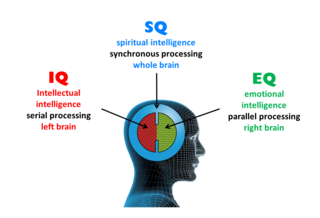Exploring the Validity of Spiritual Intelligence: A Scientific Perspective
Written on
Chapter 1: Understanding Spiritual Intelligence
The notion of “Spiritual Intelligence” has gained traction lately, yet its scientific validity remains in question. This idea, rooted in Howard Gardner's theory of multiple intelligences, has inspired numerous publications and online discussions. While empirical research validating this concept is sparse, a plethora of speculative writings exist that often overreach empirical foundations. Rather than outright rejecting spiritual intelligence, it may be fruitful to explore whether spirituality and intelligence can coexist meaningfully, potentially yielding valuable insights.
One prominent framework for spiritual intelligence was proposed by Robert Emmons, who suggests that it encompasses the effective utilization of spiritual insights for everyday problem-solving and achieving goals. Emmons distinguishes this from spirituality itself, which he describes as a quest for the sacred or inherently meaningful experiences. He posits that spiritual intelligence can enhance one's quality of life and well-being, particularly in addressing existential dilemmas and spiritual challenges.
Emmons asserts that this form of intelligence can lead to personal integration, harmonizing the psyche and alleviating internal conflicts. Essentially, it offers a cohesive framework for an individual’s life, aiming for a harmonious existence rather than a chaotic one.

Emmons identifies several key aspects of spiritual intelligence: the ability to transcend the material world, experience elevated states of consciousness, sanctify daily experiences, and apply spiritual resources to resolve issues. Initially, he included a capacity for virtuous behavior but later retracted this in light of critiques suggesting that virtues are not cognitive traits. Despite such criticisms, Emmons defends the relevance of these components, emphasizing that they relate to an individual's capacity for transcendence and mystical experiences.
Section 1.1: Gardner’s Framework and Its Critique
The justification for spiritual intelligence is grounded in Gardner's multiple intelligences framework. Gardner proposed that various abilities should be recognized as distinct intelligences, diverging from the traditional notion of a singular, measurable intelligence like IQ. Although appealing, this theory lacks empirical support, as research consistently shows that cognitive abilities are interrelated. Consequently, individuals who excel in one area often perform well in others, challenging the validity of Gardner's model.
In addition, emotional intelligence—often positioned as a unique form of intelligence—has been criticized for similar reasons. Studies indicate that it is likely a manifestation of general intelligence applied to emotional contexts. Similarly, Emmons' spiritual intelligence may correlate with personality traits and general intelligence, suggesting it might not represent a wholly separate intelligence.
The first video titled "What Is Spiritual Intelligence? // SQ 01 - YouTube" delves into the concept of spiritual intelligence, exploring its definitions and implications. This presentation provides an informative overview that aligns with the discussions surrounding Emmons' framework.
Section 1.2: The Nature of Spiritual Intelligence
Interestingly, while Gardner is open to the possibility of “existential intelligence”—the ability to contemplate profound realities—he ultimately dismisses spiritual intelligence, viewing it as primarily experiential and not aligned with traditional intelligence. John Mayer echoes this concern, stating that spirituality is often linked to consciousness states, which differ from abstract reasoning typically associated with intelligence. Emmons contends that the capability to leverage spiritual insights for problem-solving warrants classifying this as a form of intelligence.
The second video, "Quick Hit: Wake Up, Grow Up — Spiritual Intelligence vs. Spiritual Experience - YouTube," presents a succinct comparison between spiritual intelligence and personal spiritual experiences, further enriching the dialogue on this topic.
Chapter 2: The Implications of Spiritual Intelligence
Emmons defines spirituality as a quest for the sacred and intelligence as the application of tools for a more meaningful life. Thus, spiritual intelligence merges these concepts to address problems within the spiritual realm and enhance overall life quality. This definition is inherently value-laden, contrasting with more traditional, neutral definitions of intelligence. While intelligence can facilitate problem-solving, it doesn’t guarantee happiness, and individuals can find contentment outside high intelligence.
The relationship between spirituality and well-being is evident in various studies, notably one involving psilocybin, which revealed profound mystical experiences that many participants deemed life-altering. While spirituality can foster well-being, Emmons also acknowledges potential drawbacks, such as neglecting practical aspects of life in favor of spiritual pursuits.
Emmons suggests that spiritual intelligence is crucial for effectively utilizing spiritual experiences without succumbing to harmful obsessions or neglecting other life areas. Thus, a spiritually intelligent individual can integrate insights from spiritual experiences into their everyday life, leading to a balanced and meaningful existence.
In future discussions, I will explore the interplay between spiritual intelligence, personality traits, and the significance of altered states of consciousness. Further critiques of the concept will also be addressed.
© Scott McGreal. Reproduction without permission is prohibited. Brief excerpts may be quoted with proper attribution.